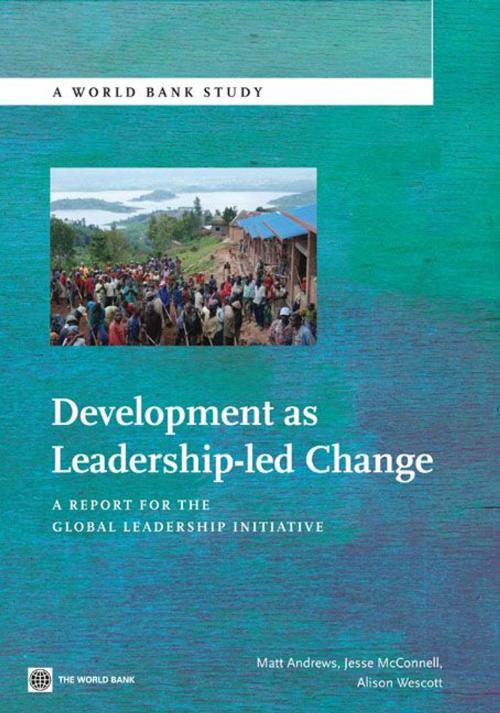Development As Leadership-Led Change: A Report For The Global Leadership Initiative
Business & Finance, Economics, Economic Development| Author: | Andrews Matthews; McConnell Jesse; Wescott Alison | ISBN: | 9780821384220 |
| Publisher: | World Bank | Publication: | June 21, 2010 |
| Imprint: | Language: | English |
| Author: | Andrews Matthews; McConnell Jesse; Wescott Alison |
| ISBN: | 9780821384220 |
| Publisher: | World Bank |
| Publication: | June 21, 2010 |
| Imprint: | |
| Language: | English |
Development involves change, but many development initiatives produce unimpressive results. The authors ask why and consider how to close the gap between the intended change and what we actually see in the evidence.This paper presents the findings of a study, initiated by the multi-donor Global Leadership Initiative and led by the World Bank Institute (WBI), to examine leadership in the change processes of fourteen capacity development interventions in eight developing countries, through 140 in-depth structured interviews. It explores what it takes to make change happen and in particular, the role leadership plays in effecting change. The authors propose that leadership contributes to change when it builds "change space" by fostering acceptance for change, granting authority for change, introducing or freeing the abilities necessary to achieve change.This "change space" is required to ensure contextual readiness for change and foster progress through the difficult stages of the change process. An analytical framework is introduced to illustrate the dimensions of this "change space" and its limits in organizational and social change. The authors argue that a lack of "change space" in many development contexts may be overlooked, contributing to failure.The paper concludes that leadership manifests in different ways in different contexts, depending on the contextual readiness and factors that shape change and leadership opportunities; but the key characteristics of plurality, functionality, problem orientation and "change space" creation are likely to be common to all successful leadership-led change events.
Development involves change, but many development initiatives produce unimpressive results. The authors ask why and consider how to close the gap between the intended change and what we actually see in the evidence.This paper presents the findings of a study, initiated by the multi-donor Global Leadership Initiative and led by the World Bank Institute (WBI), to examine leadership in the change processes of fourteen capacity development interventions in eight developing countries, through 140 in-depth structured interviews. It explores what it takes to make change happen and in particular, the role leadership plays in effecting change. The authors propose that leadership contributes to change when it builds "change space" by fostering acceptance for change, granting authority for change, introducing or freeing the abilities necessary to achieve change.This "change space" is required to ensure contextual readiness for change and foster progress through the difficult stages of the change process. An analytical framework is introduced to illustrate the dimensions of this "change space" and its limits in organizational and social change. The authors argue that a lack of "change space" in many development contexts may be overlooked, contributing to failure.The paper concludes that leadership manifests in different ways in different contexts, depending on the contextual readiness and factors that shape change and leadership opportunities; but the key characteristics of plurality, functionality, problem orientation and "change space" creation are likely to be common to all successful leadership-led change events.















